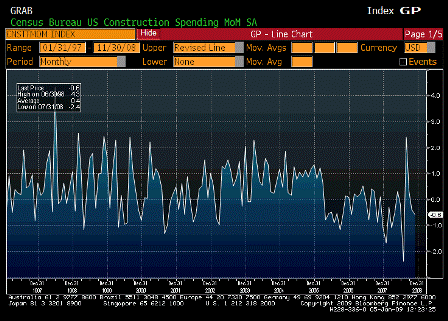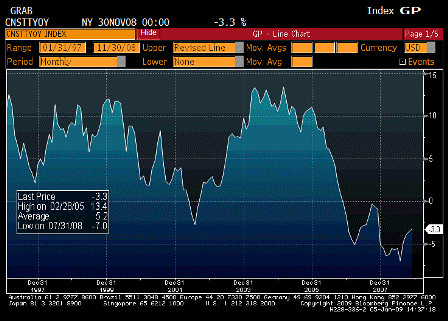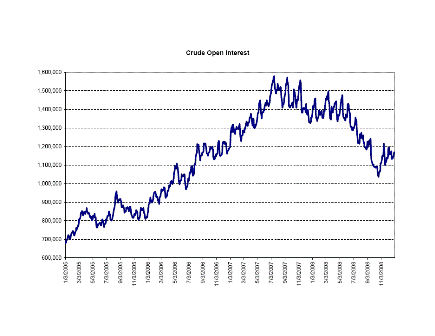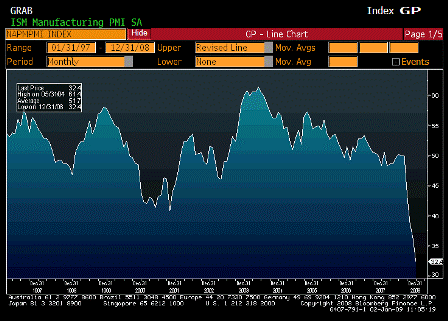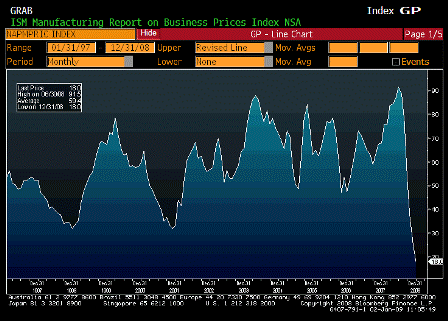[Skip to the end]
We are still very close to the edge of available supply.
And the OPEC cuts are supporting Saudi efforts to bring price up without losing too much production.
By Mark Shank
Dec. 31 (Bloomberg) — Crude oil rose, trimming a record annual decline, after a government report showed a smaller-than- expected gain in U.S. fuel stockpiles.
OPEC Production Cuts
Oil may rebound next year to average $60 a barrel as the Organization of Petroleum Exporting Countries makes record production cuts to counter the deepest economic slump since World War II, according to the median of estimates by 33 analysts surveyed by Bloomberg. That would be a 45 percent gain from today’s price.
Refineries operated at 82.5 percent of capacity last week, down 2.2 percentage points from the week before and the lowest since the period ended Oct. 10 when the Gulf Coast was recovering from hurricanes Gustav and Ike. Analysts forecast a 0.5 percentage-point increase.
Refiners often shut units for maintenance, also known as turnarounds, in late January and February as heating-oil demand falls and before gasoline use rises.
‘Ample Crude’
“We have ample crude-oil supplies and a minor surplus in supplies of the products,” said Peter Beutel, president of Cameron Hanover Inc., an energy consulting company in New Canaan, Connecticut. “If we have a heavy turnaround period, the surplus in products could soon turn into a deficit.”
U.S. fuel consumption during the four weeks ended Dec. 26 averaged 19.9 million barrels a day, down 3.7 percent from a year earlier, the report showed.
3.7% is tiny, and the year over year drop has been declining.
Demand has to be surprisingly high given the extreme weakness of the US economy.
And while the lower prices are helping sustain demand, demand never did fall off that much.
[top]
